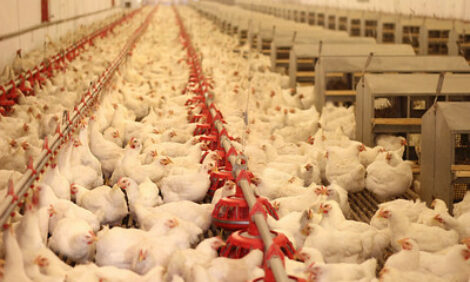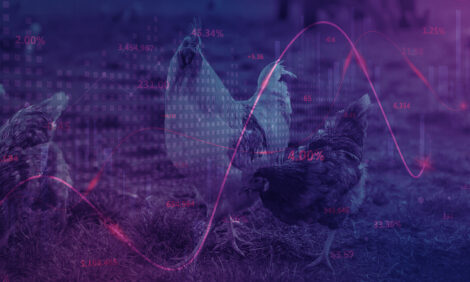



Avian Flu in US Would Cut Poultry Consumption – But Not Much
Poultry meat consumption patterns would decrease to varying levels around the nation but not significantly overall if there were to be an outbreak of avian flu in the US, according to a consumer survey carried out by Kansas State University.The prospect of what would happen to the poultry industry economically if an avian flu outbreak occurred in the United States is a hypothetical situation that no one wants to put to the test in real life. But if it did happen, the results of a survey indicate that poultry consumption patterns would decrease at varying levels around the nation.
"Overall, only a very small proportion of the people said they would stop consuming poultry," said Sean Fox, a professor of agricultural economics at Kansas State University who researched the impact of an outbreak in a Food Safety Consortium-supported project. "You do have your 15 to 20 per cent saying they would stop consuming poultry. This is what people say they would do. What they would actually do is probably very different."

Professor Fox bases that prediction on what happened in 2003 when the discovery case of bovine spongiform encephalopathy (BSE) in the United States led to South Korea cutting off US beef imports until 2008. Professor Fox surveyed the public to find out people's plans for beef consumption. Respondents to his 2004 research inquiry showed that 15 to 30 per cent said they would stop consuming beef if additional cases of BSE were discovered.
More cases were reported in later years, but beef consumption did not drop.
Professor Fox sent a mail survey to 800 residents each in Wichita, Kansas, and Los Angeles and received responses from 346 in Wichita and 139 in Los Angeles. About half the respondents in each city said they were unconcerned about getting sick from bird flu. In Los Angeles, 28 per cent were concerned about getting the disease compared to 15 per cent in Wichita.
As to poultry consumption habits upon the hypothetical discovery of bird flu in the United States, 70 per cent of Wichita respondents and 50 per cent of Los Angeles respondents said their consumption levels would remain the same. In Los Angeles, 14.6 per cent said they would stop consuming poultry while 7.8 per cent of those in Wichita said they would do so.
Two versions of the survey were distributed with some including a statement that proper cooking would kill any bird flu virus in poultry, but the inclusion of that information had no effect on respondents' attitude toward whether their consumption habits would change.
| * "My reading of the numbers is that there will be a very minimal effect on demand." |
|
Professor Sean Fox
|
"This suggests a limited ability for the industry to effectively reassure consumers in the event the disease is discovered in the United States," Professor Fox said.
He noted that there are similarities between this survey and the one he sent to consumers in 2004 asking what they would do if more BSE cases were discovered.
"The evidence that we had suggested that those numbers greatly exaggerated what happened in the marketplace when those scenarios actually did play out," Professor Fox said. "My reading of the numbers that we got here is that if we do find a case of avian flu in the United States that there will be a very minimal effect on demand."
Professor Fox said the research did not indicate how long a boycott of poultry would go on among people who cease buying the product, but he believed it would not last long. He recalled that during the 2004 BSE situation, the drop in domestic consumption of beef was short lived and that later in the year, the demand bounced back to a stronger level than in the previous year.
Further Reading
| - | You can visit the Avian Flu page by clicking here. |
April 2011








